Iceland Doesn't Care For Last Names
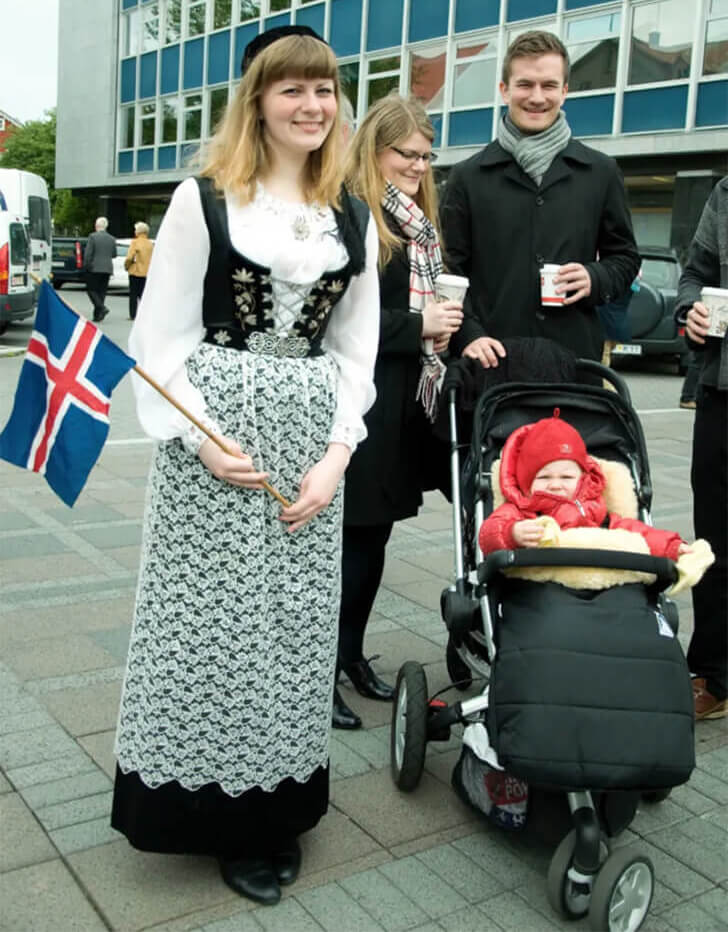
What better way to introduce this list than with names? Although there might be exceptions, Icelanders generally don't use surnames or family names. Most have a patronymic last name, which means their father's first name combined with the attached suffix for daughter or son.
Also, women don't change their names when they get married. And if they've already done this overseas, they'll need to return to their maiden name if they ever plan to move back to Iceland. All this doesn't matter that much, though. Why? Because everybody, from teachers to doctors and even politicians, is always called by their first name.
They Have A Naming Committee for Baby Names
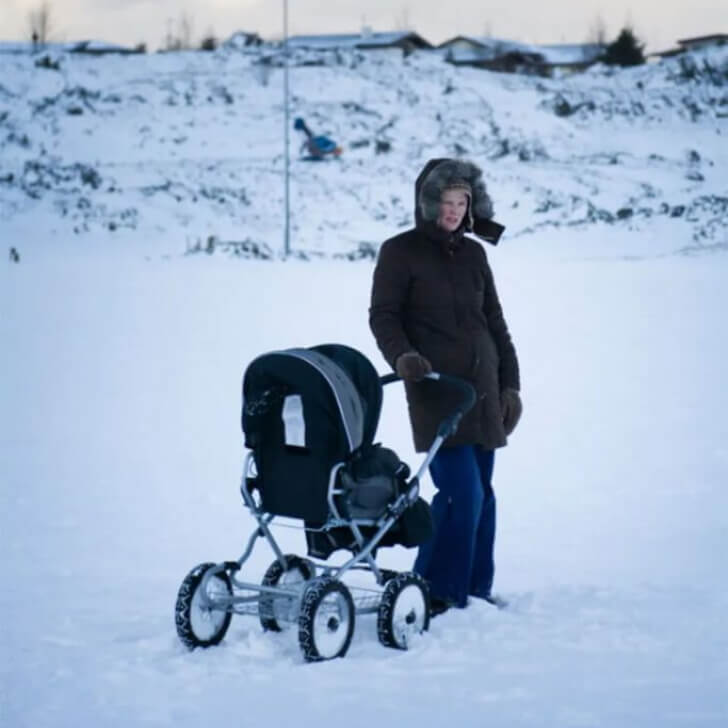
Iceland is serious when it comes to baby names, evident in the strict rules they have surrounding them. In fact, they must conform to the Icelandic language and be among the approved names in the official register. Any parent that wants a different one for their newborn must first request permission from the Icelandic Naming Committee, also known as the Personal Names Committee.
Speaking of infants, in most Scandinavian nations like Iceland, they're wheeled outside to take a nap outdoors because it is believed that the fresh air helps keep away illness. Some sleep specialists even claim that cold air induces a deeper snooze.
Their All About Gender Equality
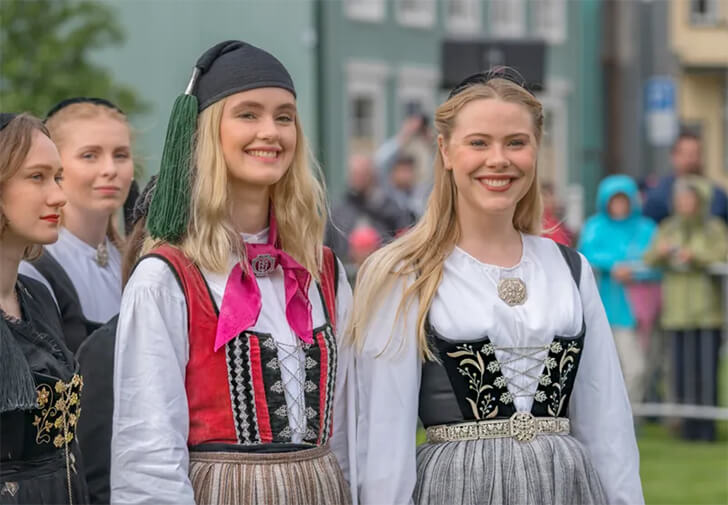
In the matter of gender equality, Iceland fares way better than a lot of other nations. They have lots of uplifting success stories, with many Icelandic women being business owners. The country has also been setting trends by challenging preconceived notions about gender stereotypes, like using street signs that depict women working on the road.
For nine years in a row, the small island nation has been ranked by the World Economic Forum as the world's most gender-equal country. About half of Iceland's parliamentarians are women, and it has had a female president for 20 of the last 50 years.
Home Of The World's First Female President

It's incredible how Iceland is home to the world's first female democratically elected president, Vigdís Finnbogadóttir. She became the country's fourth president during the 1980 presidential campaign, beating three male candidates by garnering 33.6% of the votes. And after years in the position, the political leader was elected once more in 1988 through 94.6% of the votes!
According to a 2022 Forbes article, Finnbogadóttir is still a consummate politician who speaks for women's rights. That same year, she even made an appearance at the Reykjavik Global Forum, where her presence was honored by Iceland's prime minister, Katrin Jakobsdottir, and other high-level women in politics.
Let's Talk About Marriage
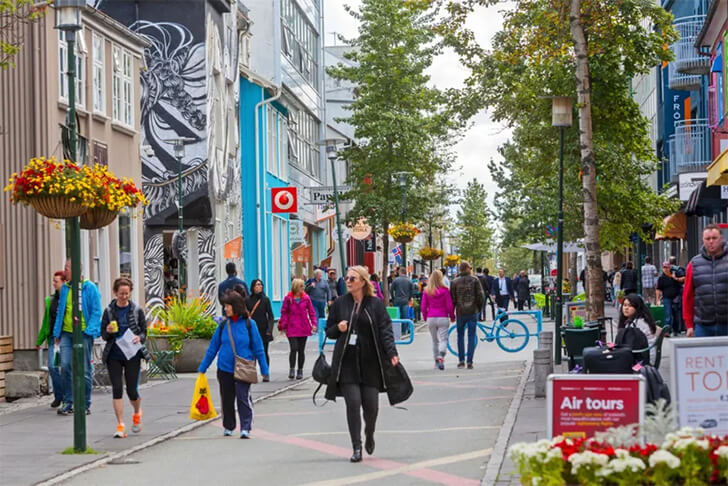
Iceland is less traditional about customs and conventions. An excellent example of this point is the reality that marriage isn't as popular in this country as it is in others. It's just not a huge deal in this Arctic state, with over half of the children born to unwed parents.
As per Statista, a total of 108,000 people tied the knot in Iceland in 2012. A decade later, those figures have only risen to 123,000. On top of that, unmarried singles made up the second highest number, with almost 88,000, followed by about 30,000 unmarried individuals involved in a consensual relationship.
Feel Loved Through These Traffic Lights
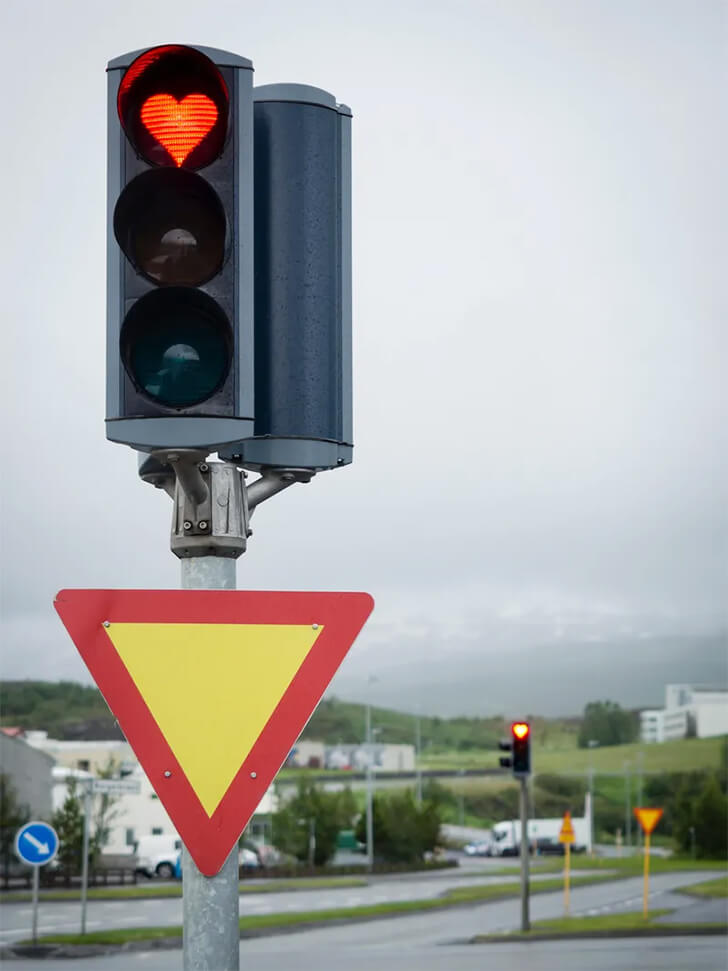
Iceland went through an economic crash in 2008, and its citizens were devastated. The northern town of Akureyri then added heart fixtures to their traffic lights to lift everybody's spirits. Its former mayor, Eiríkur Björn Björgvinsson, has said it's a reminder to stay positive.
Just a hundred kilometers from the Arctic Circle, Akureyri is the second biggest urban area outside the Reykjavík capital, with a population of around 19,642 as of 2022. Among the places to visit here is the Botanical Garden, which boasts almost every plant that grows in the Nordic island country, together with several species from other nations, including Greenland.
McDonald's Are Nonexistent Here
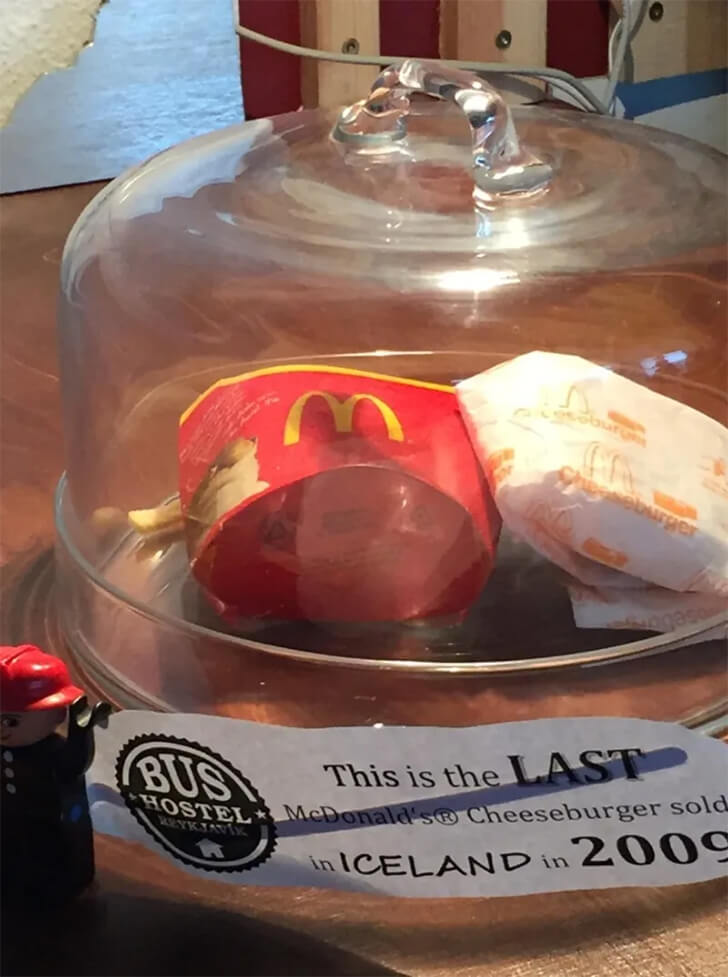
With more than 38,000 sites in over 100 countries; it's no surprise how McDonald's has become a staple. What's shocking, though, is that this fast food chain isn't found anywhere in Iceland, which has a population of 346,938, as per the January 2023 United Nations data.
The last McDonald's in this Nordic nation shut down in 2009, and a new one has yet to open since. We're not saying that Icelanders don't care for fast food since they do dine out frequently. But despite that, the world's largest restaurant chain by revenue couldn't grasp how to survive among Iceland's volcanoes, hot springs, and fjords.
Living With 130 Volcanoes
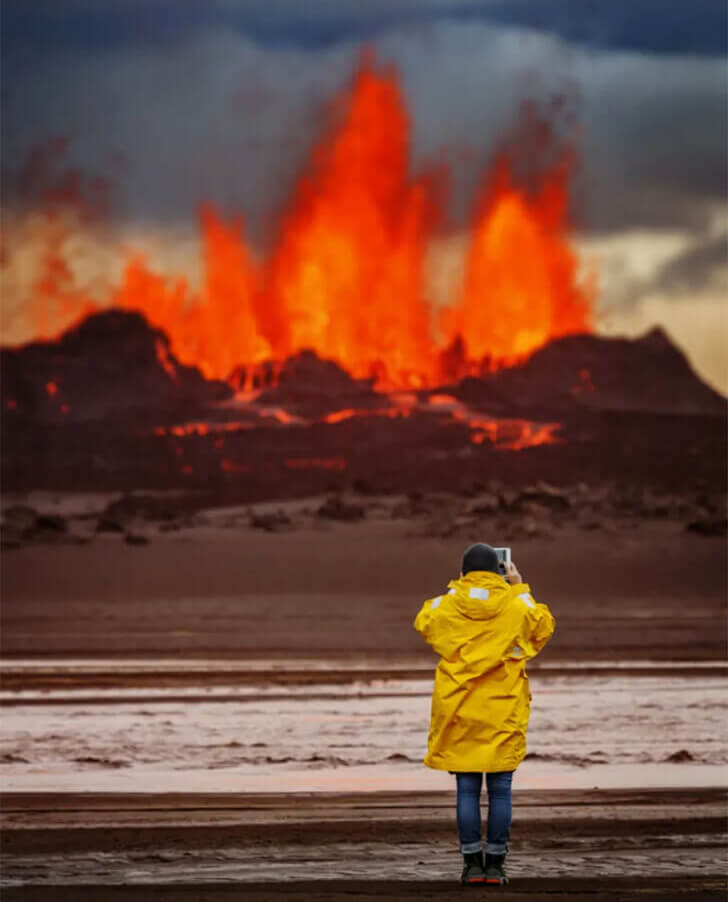
Found on the Mid-Atlantic Ridge, the Nordic island of Iceland sits on the tectonic plates separating Eurasia and North America. Because these plates are constantly in motion, the spaces get filled up with magma, which causes volcanic eruptions. Simply put, out of 130 volcanoes in this country, 30 are active. Yikes!
Still, these fiery natural wonders came with many good things, including a basalt rock shaped like an elephant's head. After a string of eruptions, the Westman Islands suffered substantial damage. Then again, all that molten lava forged a remarkably defined animal structure that's become a unique landmark in the area.
Holder Of Europe's Biggest Banana Plantation
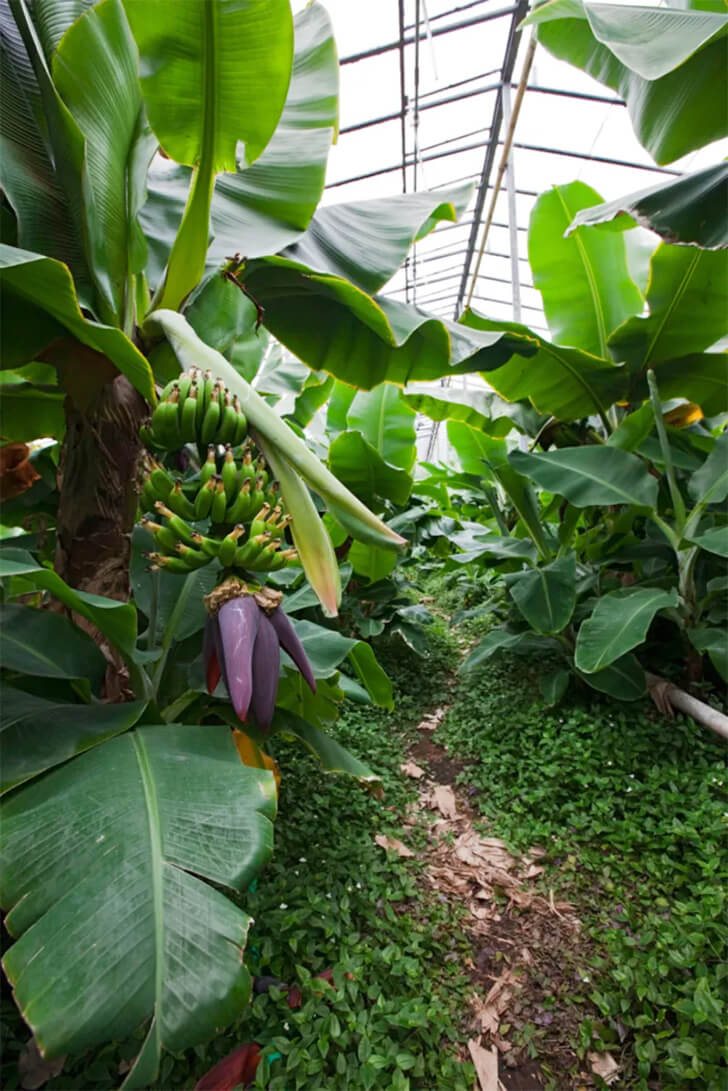
If we're going to be technical, the Canary Islands in Spain grow more bananas in their plantations. However, they're not in Europe, so Iceland is first on this continent. Using geothermal energy, the Icelandic Agricultural University can grow up to 4,500 pounds of bananas yearly.
Only 1% of the land is considered arable in Iceland, meaning that it's fit for growing crops like cabbage, carrots, cauliflower, potatoes, kale, and turnip. Other subtropical crops, cut flowers, and potted plants can be found in greenhouses warmed with geothermal energy. All this despite the harsh weather conditions of this nation and restricted growing season.
Drink From Its Pure, Clean Waters
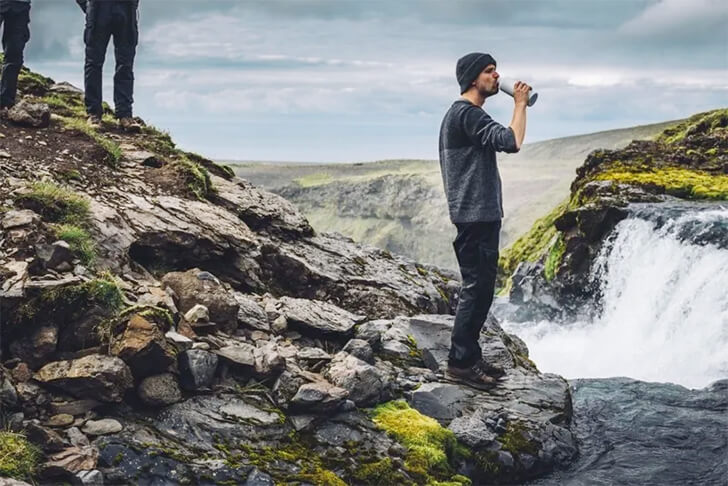
Can you believe that it's safe to drink tap water in Iceland? It's so pure that we wish the whole world would be the same, so we can say goodbye to filtered bottled water. Nearly all of their tap water is sourced from groundwater, kept deep in wells beneath the earth's surface.
Also, one can drink direct from the country's streams, lakes, and rivers. Just bring a tumbler to collect fresh drinking water from the source. On top of that, Iceland also has healing bodies of water, like the Blue Lagoon Spa, known for its soft white silica mud and steaming mineral-rich water.
The People Elected A Comedian Mayor
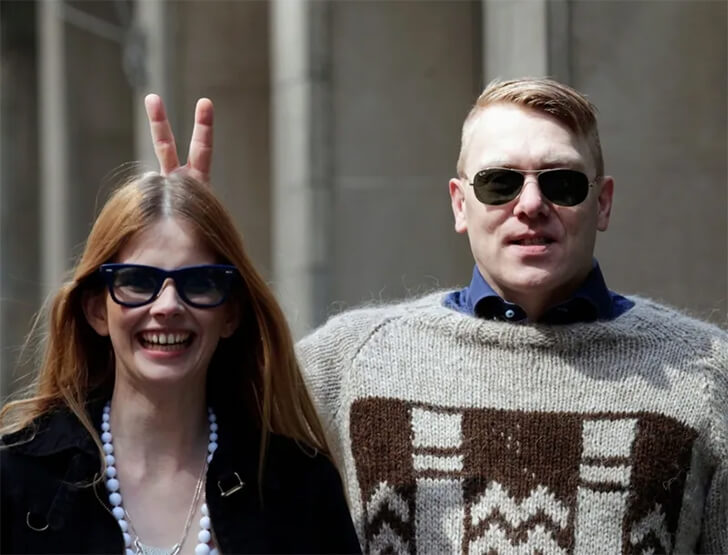
In 2010, Jón Gnarr, an Icelandic standup comedian, established the "Best Party" with a few other people who had zero political experience. Knowing this, it's clear his campaign to run for mayor was a joke, right?
But surprisingly, even to Gnarr himself, he won with 34.7% of the popular vote! He ended up seated in the position for four years between 2010 and 2014, during which he was called "his favorite mayor" by philosophist Noam Chomsky. After that, Gnarr published a memoir about how he became the mayor of Reykjavík. In this picture, he is posing with Best Party leader Heida Helgadottir, as per The Guardian.
There's an App to Check Your Relatives
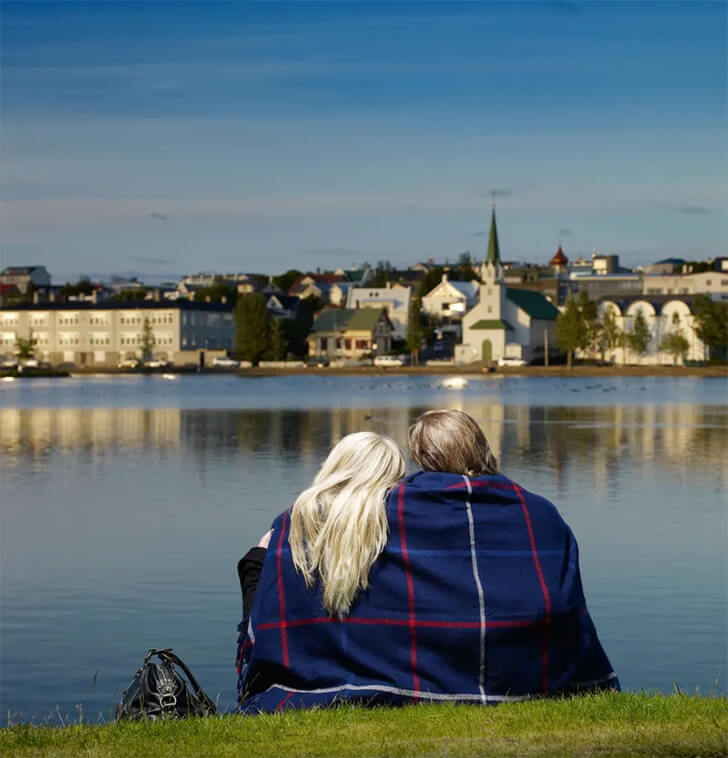
Another thing that took place in 2010 was the launch of Íslendingabók or the Book of Icelanders. Friðrik Skúlason, an anti-virus software entrepreneur, worked with a genetics company called deCODE to create the genealogy website. Interestingly, its database was developed in 1997 by this biotechnology firm.
But since its debut, the project has morphed into something much more, birthing a mobile app used by Icelandic natives to check if their potential date is a close family relative. After all, the little island nation is sparsely populated. And honestly speaking, we're not even surprised that a group of college students created the Íslendinga-App.
Experience The Midnight Sun
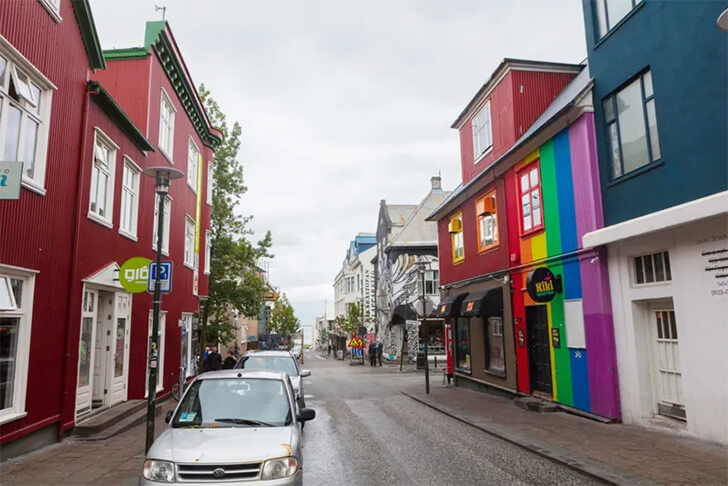
During summer, Iceland gets 21 hours of daylight, meaning that one can find themselves at an outdoor bar with the sun shining at 11:30 p.m. At this time, a yearly occurrence takes place called the 'midnight sun,' wherein for a few days, the sun is visible at midnight.
It's easy to lose time in this place, but since most stores close their doors around 5:00 p.m. and only open the following day around 9:00 a.m., we could use that as a point of reference. Then again, souvenir shops in large cities like Reykjavik usually have longer opening hours, letting tourists shop as late as 10:00 p.m.
Iceland Is Big On Work-Life Balance
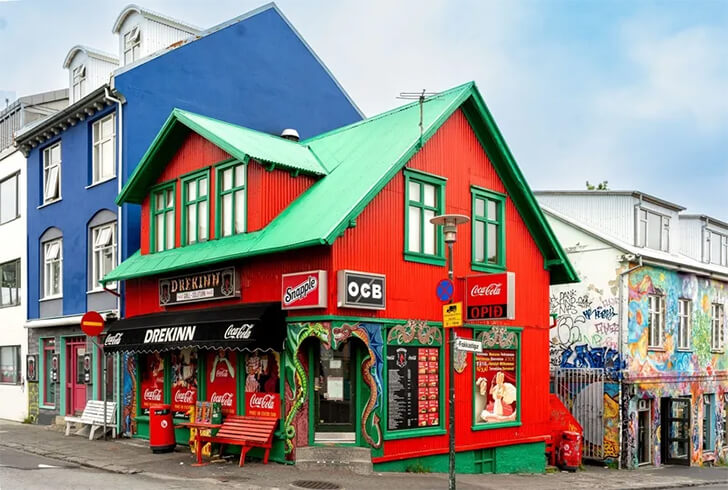
Iceland is among the first nations to trial a four-day work week. Between 2015 and 2019, they ran the globe's largest trial, with results revealing that workers were happier, healthier, and more productive. These trials occurred in different workplace environments, like hospitals, preschools, offices, and social services.
The positive results sparked union pressure, and as per a 2021 Wired article, 86% of Icelandic employees either work shorter weeks or have the right to ask for it. Then again, many Icelanders work more jobs during the frigid cold winters to keep busy and avoid seasonal depression. The Medieval Icelandic calendar is divided into two seasons, summer and winter.
Harnessing The Earth's Energy

Many folks have yet to learn that Iceland utilizes geothermal heating to heat their homes, car parks, and sidewalks, keeping them snow-free. That's genius! It means Icelanders don't need to shovel snow thoroughly anymore, and the best thing about it is that it's all because of natural resources.
Icelanders initially began harnessing the power of their earth by baking bread and bathing in hot springs, but these days, they're a pioneer in utilizing geothermal energy. As per Arctic Adventures, Iceland's capital of Reykjavík has the world's most extensive district heating system, and the nation itself has a 99.96% renewable energy supply.
Icelanders Celebrate Their Own Beer Day
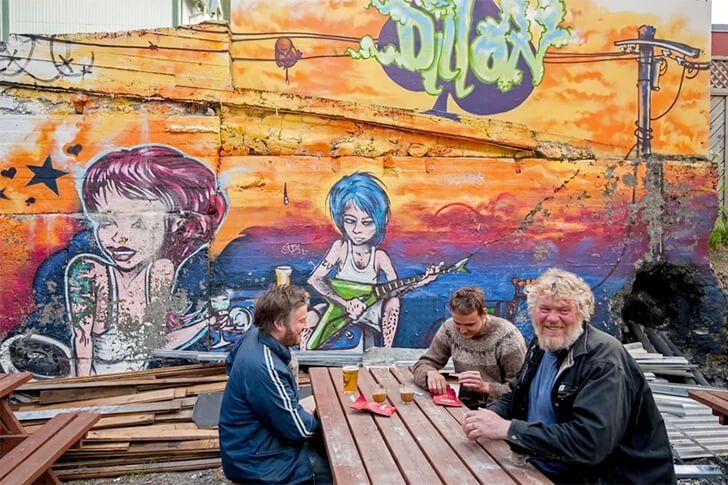
Similar to the United States, Iceland also had an unsuccessful spell of alcohol prohibition. For America, it lasted from 1920 until 1933. But unlike the U.S., this Nordic nation celebrates the end of the ban with a national beer-themed festivity, the Icelandic Annual Beer Festival.
Iceland voted on an alcohol ban in 1908, and it lasted until 1989, meaning 80 years with no booze! "Bjordagur," or Beer Day, the unofficial national holiday marking the occasion, takes place yearly on March 1. Icelanders take their beer-making so seriously that they've even bagged some exceptional prizes at the prestigious World Beer Awards.
No Mosquitoes Flying Around
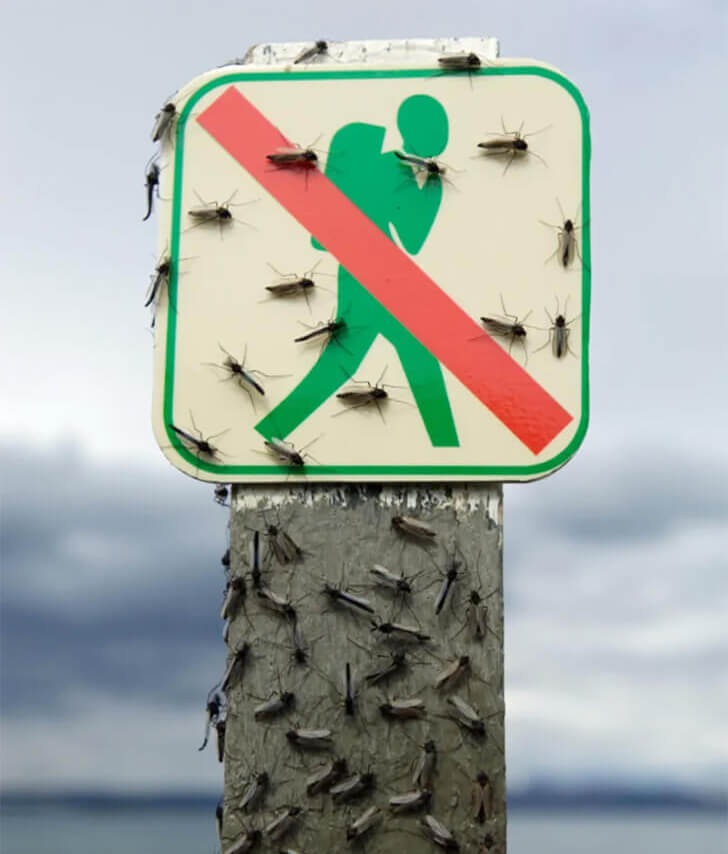
Although there are over 1,300 types of insects in Iceland, you won't find a single mosquito there. This is because of the low temperatures that a mosquito's lifecycle can't acclimate to, being cold-blooded critters that can't regulate body heat.
Not having these blood-drinking creatures might sound great, but there are other bugs that Icelanders have to deal with. Among them are midges, which are similar to mosquitos. They make their way into homes and bite sleeping victims. Entry is easy since windows and doors typically don't have any screens in Iceland. Often, the bites even get swollen and turn into blisters.
Get Alerts To See The Northern Lights!

Of course, we can't talk about Iceland without mentioning the magnificent Northern Lights that shows up during any winter months between September and April. But did you know that hotels offer a service where their staff wakes up guests if the Northern Lights make an appearance?
They do, and it's the perfect solution for anybody wanting to enjoy the lights and a good night's sleep since the highest chance of seeing them is around midnight. There's also an app called Aurora Alerts, which is developed to monitor real-time auroral activity and push alerts if the Northern Lights would be visible.
A Warning Sign
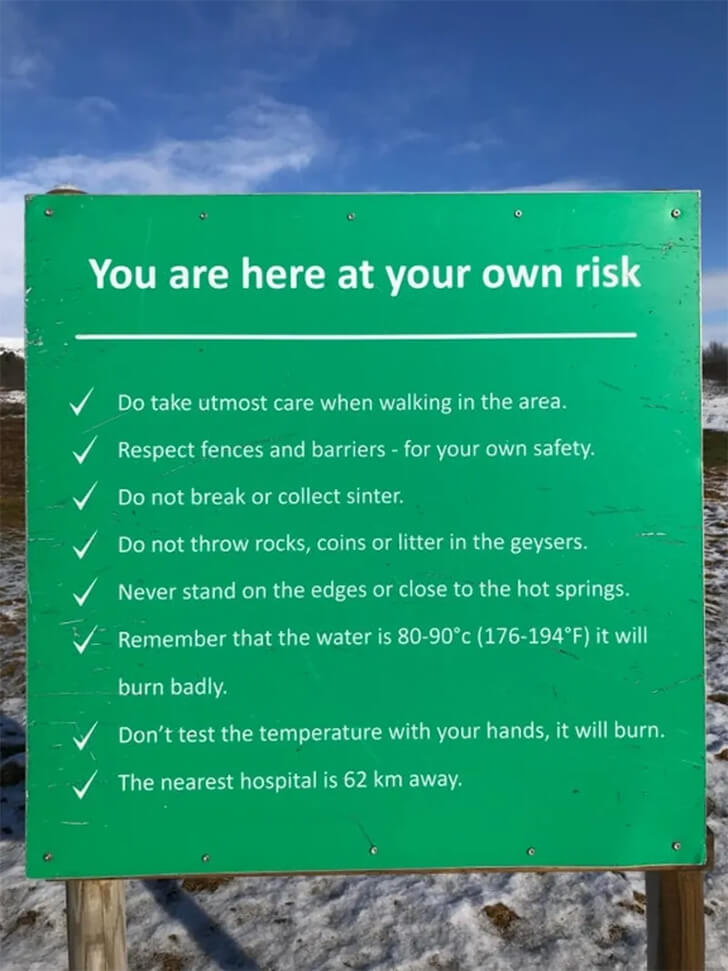
This warning sign is placed at the site of the first-ever geyser recorded in a printed source, reminding everyone there of their own mortality. This hot spring in southwestern Iceland is the nation's most visited geyser as well as the first-known to modern Europeans.
It's also home to boiling mud pits, exploding water spigots, and erupting hot geysers. For those who have an interest in the origin of words, they would be pleased to find out that the English word "geyser" is actually derived from the name of the great geyser. It is known as Geysir in the Haukadalur Geothermal Area.
Icelanders Swim in the Winter
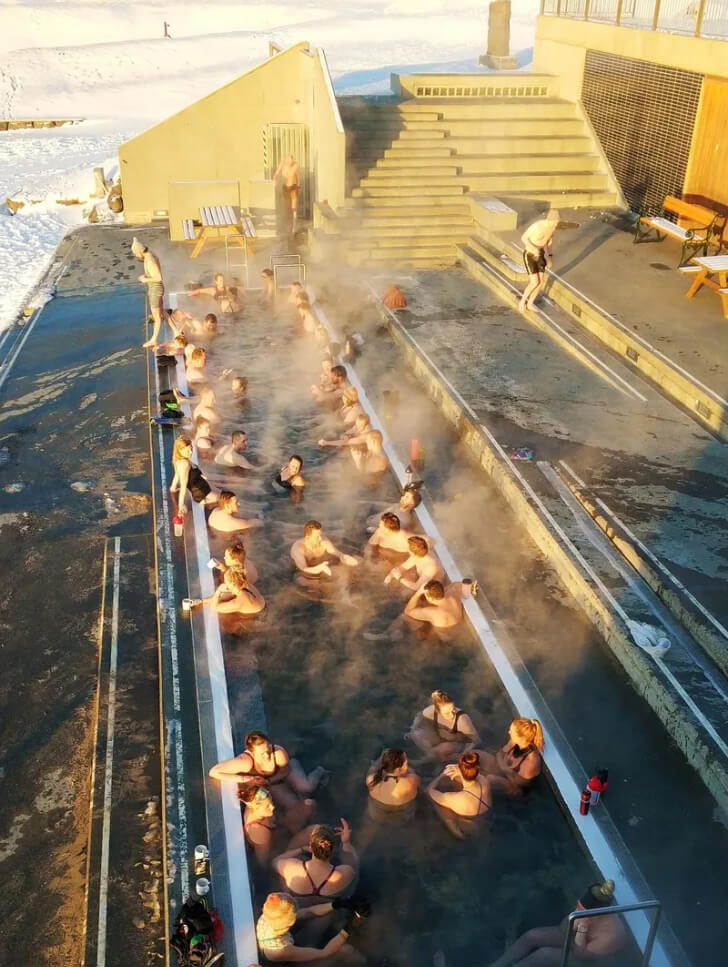
It's easy to think that Icelanders would forego swimming in the cold winter months, but that isn't the case at all. We're talking about people who would eat ice cream no matter the temperature and even have a word for eating it while driving in a car. It's called "ísbíltúr," which translates to "ice cream car trip."
With an abundance of hot springs, many Icelanders love going for dips. The good thing about having geothermal, volcanically-heated water is that you can take a plunge no matter how chilly it gets outside. There are also heated pools constantly maintaining a temperature of at least 86 degrees Fahrenheit.
The Sheep Population of Iceland
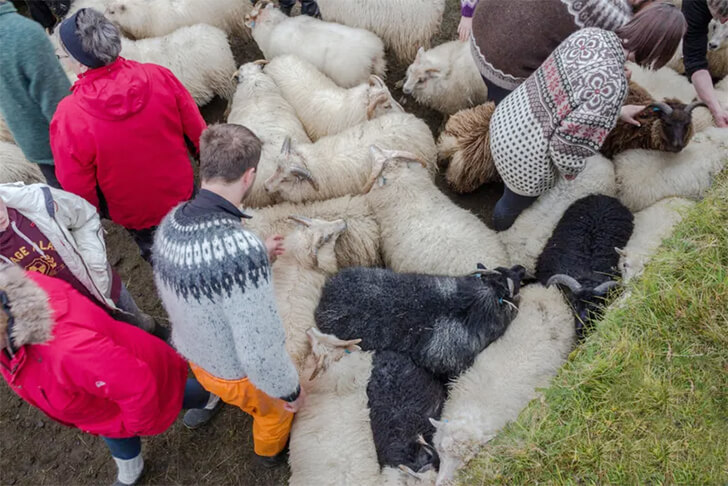
If you're anything like us, you're all about learning fascinating facts. So, we've got one for you—Iceland's sheep population doubles that of its human population. Then again, somehow, it makes sense. With temperatures that low, Icelanders will need all the sweaters they can get their hands on, and what better way to do it than keeping all those sheep around?
In the late '70s, there were nearly 900,000 sheep in Iceland, equating to roughly one sheep per resident. Numbers have been falling through the years, though. As of 2022, what's left is under approximately 500,000, according to the Campervan Iceland website.
They Have An Elf School
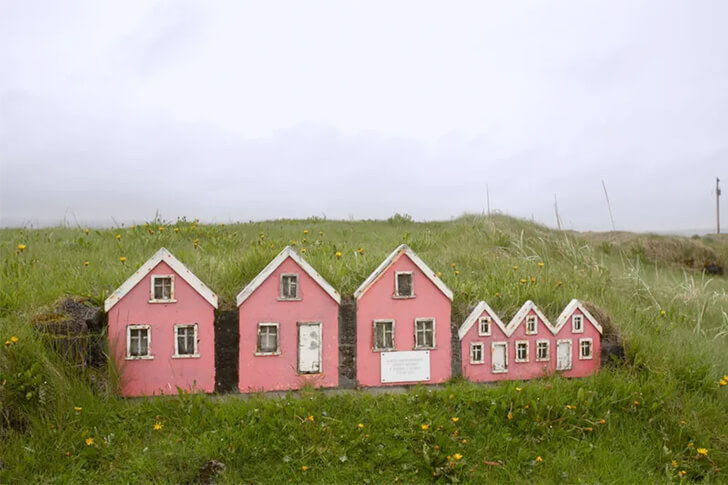
Did you know that Iceland has an elf school that offers lectures and guided tours on Icelandic mythology and folklore? The "Álfaskólinn" or Icelandic Elf School is an organization found in the capital city of Reykjavík that teaches visitors about Icelandic folklore.
The institution was created by the headmaster (and elf expert) Magnus Skarphedinsson to document elf encounters in the nation, with 1,400 stories and counting. The elf school teaches about the five types of elves, hidden people, and other invisible beings inhabiting this island nation. As per tradition, there are 13 different kinds of elves, and over 60% of Icelanders consider them real!
An Old Norse Tradition Where Trees Are Planted on Graves
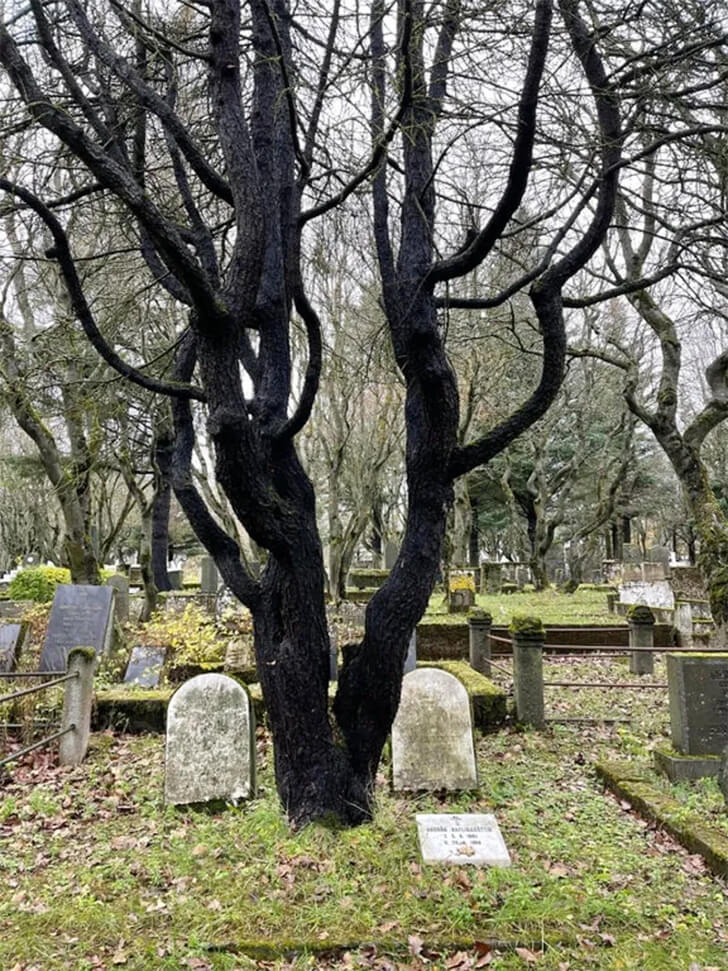
Proof of Iceland's enchanting folklore shows up in the most far-fetched of places. Take this tree-filled cemetery in Reykjavik, for example. This graveyard is called Hólavallagarður, and according to the local legend, it was initially a Viking burial ground.
It's been said that these trees were planted on graves as an old Norse tradition, and now visitors can touch the trees to connect with their loved ones who have passed. In the United States, organic burial pods like the Capsula Mundi or the Bio Urn are legal for use as of 2023. However, every state has its own laws, rules, and regulations for natural burials.
The Springs Are Not Wishing Wells
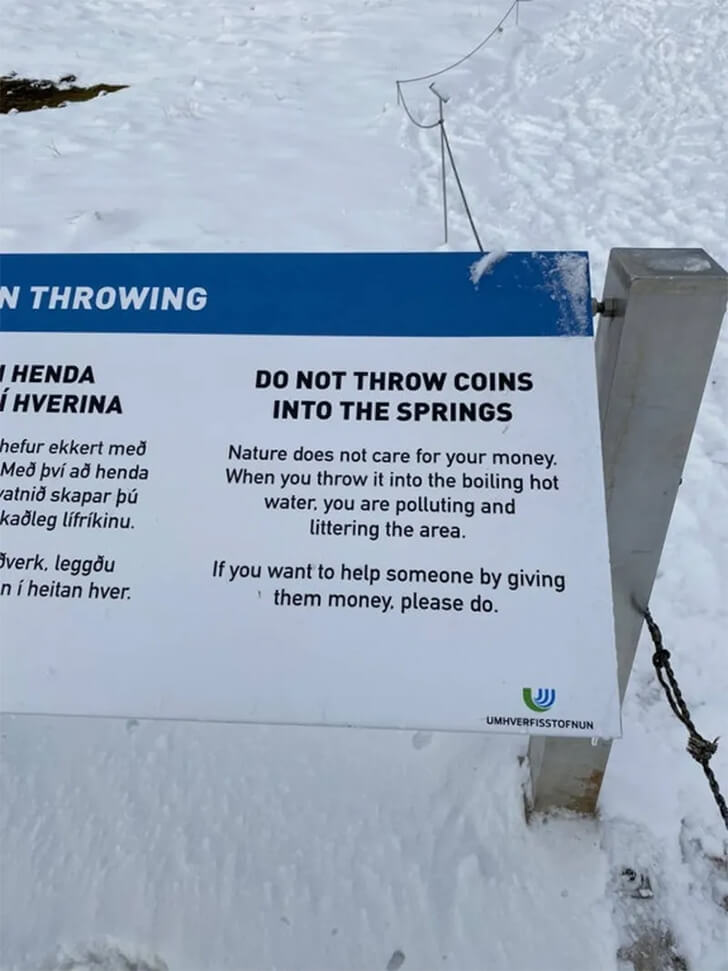
Iceland is clearly visited by many tourists, with two million coming annually. So when they arrive, there are specific rules they need to follow. This one is for those who think springs are wishing wells, where they can throw coins in for a wish.
For instance, some guests that have visited the Geysir geothermal area have thrown coins into the geyser Blési. According to the ranger Lárus Kjartansson, a specialist with the Environment Agency of Iceland, coin-tossing has been an issue for many years. He added that they might have to put up more prominent signs to ensure visitors notice them.
Situated Between Two Continents
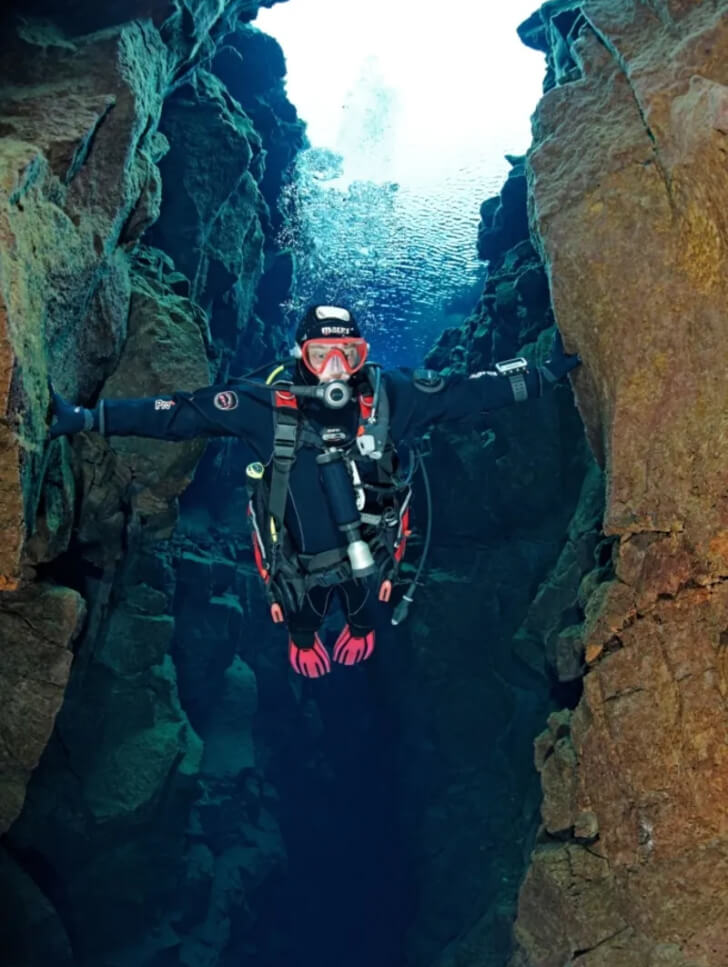
There's no other place on this planet where you can swim between two tectonic plates than Iceland. In fact, some of the openings are so narrow that you can even touch both sides at the same time. This is a crack between continents formed that emerged from tectonic plates pulling apart. This place is also the home of the world's cleanest water.
Icelanders can really boast about their natural waters, and they somehow did so by paying tribute to their marine wildlife. Instead of displaying their most famous and notable people, their coins are actually imprinted with fish and shellfish.
There Isn't a Public Railway System
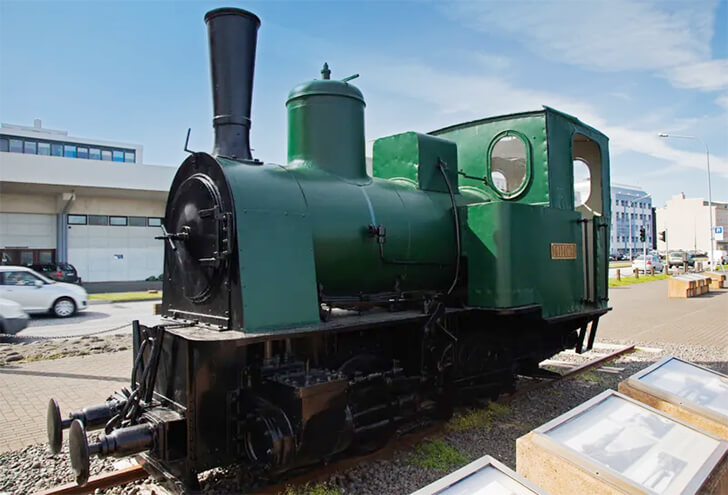
Despite being so developed, Iceland does not have a public railway system. While they do have a railway utilized exclusively for transporting produce and goods, it's not meant for the public to use. Apparently, the nation's population is too sparse, and the weather conditions are too harsh to accommodate a smooth and functioning railway system for the public.
Speaking of transportation, in honor of Iceland's sword-wielding Nordic descendants, a "Sword Road" was made on the Snaefellsnes peninsula, north of Reykjavik, leading to many famous sights. It's impressive since we often conjure images of the Vikings, who first settled in Iceland in the 9th century when we think of Scandinavian countries.
Freedom of Religion
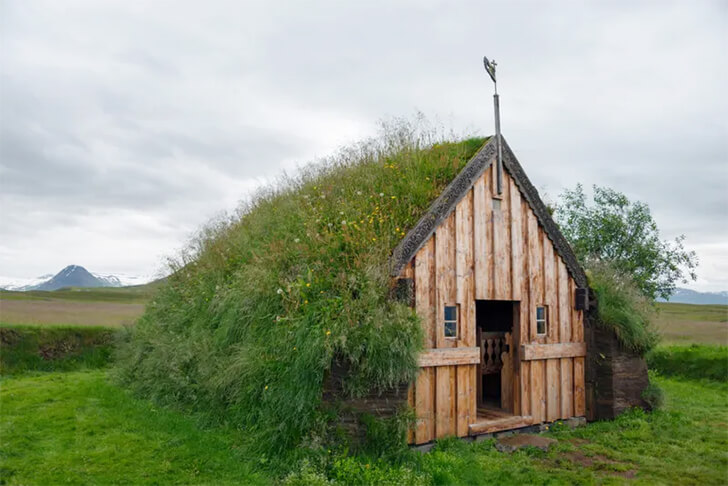
In terms of religion, Icelanders have always been very open-minded. While many of them believe in fairies and elves, a big part of the population are still members of the Church of Iceland. The Evangelical Lutheran Church of Iceland, also called the National Church, is the officially established Christian church in the Nordic country.
Around the end of the 19th century, Iceland has become more open to new religious ideas than many other European nations. Since 1874, freedom of religion has been enshrined in the Icelandic constitution. The oldest church in this country is the 17th-century Grafarkirkja Church, and it's what you're seeing in the photo.
A Country of Cinephiles
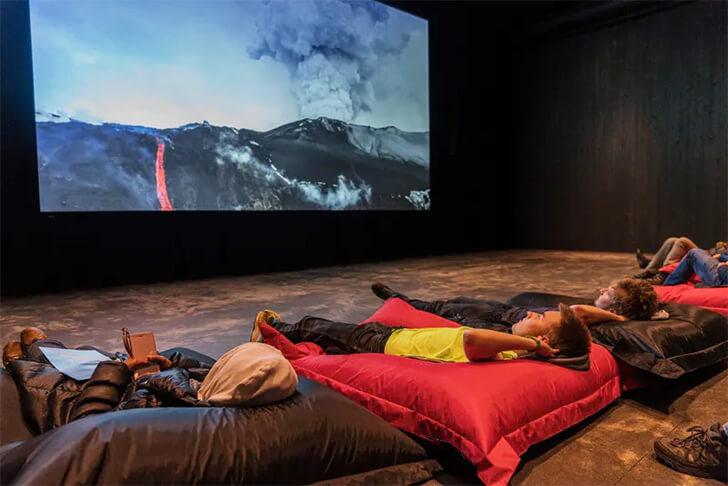
Icelanders watch more movies than any other nationality, which isn't all that shocking when there are only two to four hours of daylight in winter and a freezing blizzard outside! Folks would just find something nice they can pass the time with while staying indoors, and watching films is among them.
The love of Icelanders for the cinematic arts stretches beyond their living room, as their country also has the world's highest rate of cinema attendance per capita. On a side note, it has also produced more writers per capita than anywhere in the world. Also, one in every ten folks in Iceland has published a book in their lifetime.
Iceland Has 13 Santas
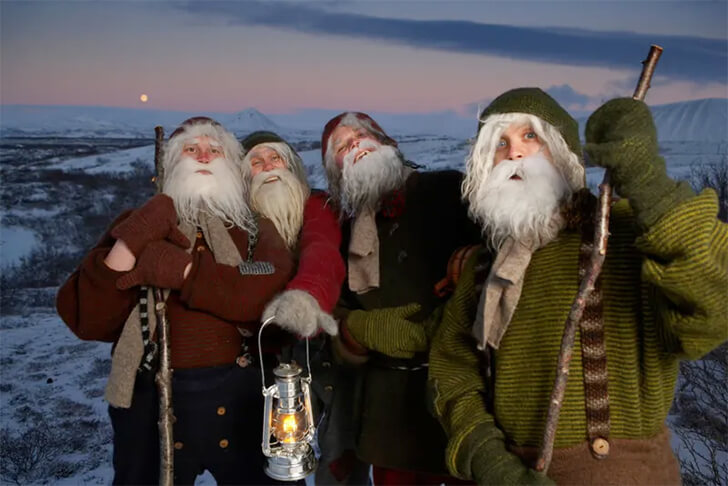
While the Western world usually awaits in anticipation for their presents on Christmas, Icelanders expect 13 Yule Lads to visit them instead of the actual Santa Claus. Each rugged-looking Santa visits once, starting 13 days before Christmas, as children in Iceland excitedly wait for their small gift.
Interestingly, they have a tradition called "Jólabókaflóð," meaning "Christmas book flood," wherein everybody receives a book for Christmas. As a nation of book lovers, it's evident that Iceland has a firm grasp of literature. With a strong tradition of reading dating back to the 13th century, it's no wonder one out of ten Icelanders will put out a book in their lifetime.
100 Words for Wind
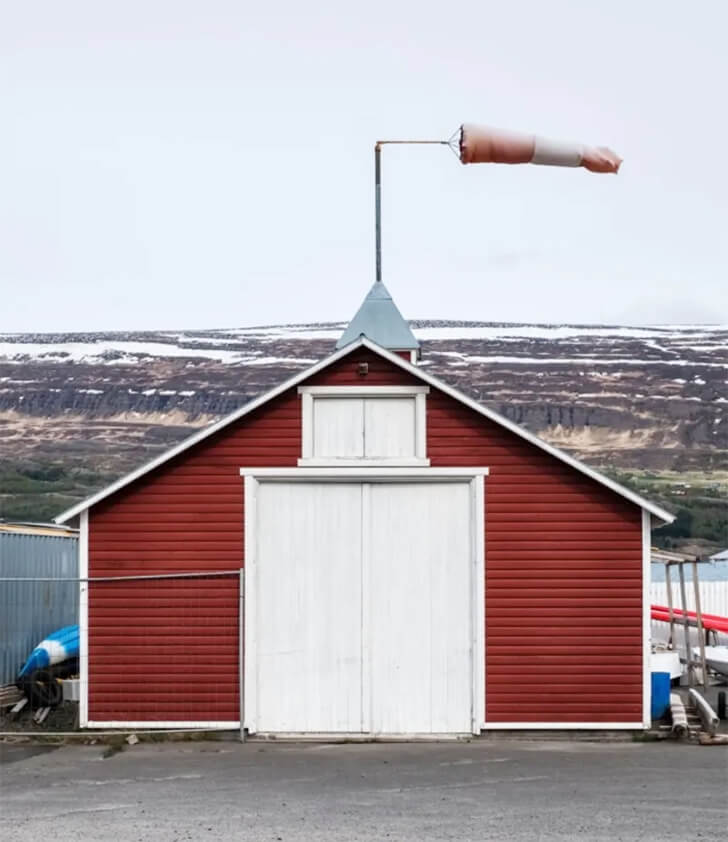
With a language notoriously tricky to learn, locals speak English quite well, making it easy for tourists to get around. One interesting fact about Iceland is that it has 100 words for wind, which makes sense due to its weather. It's also very similar to Old Norse, which means many Icelanders can read ancient texts written in it.
When we picture Iceland, we might imagine freezing winds and heavy snowstorms, but that's not the case in summer. Iceland's average high summer temperature is only 57 degrees Fahrenheit, with the overnight average summer low being 43 degrees Fahrenheit, so it never gets too cold, either.
